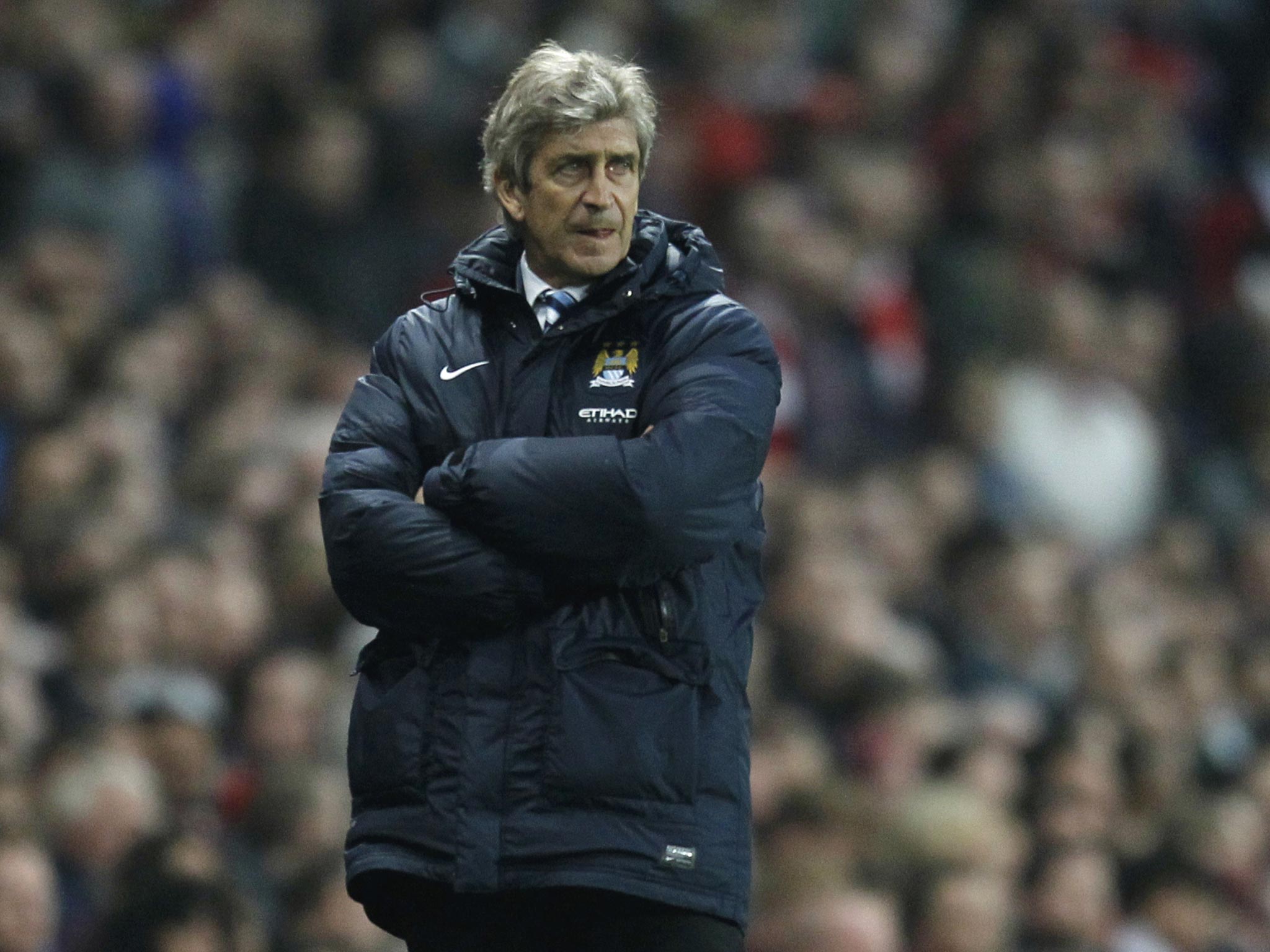On the anniversary of Hillsborough when football is put in proper context, it is worth recalling why Manuel Pellegrini gave up playing the game.
In March 1985, he was a central defender for Universidad de Chile in Santiago when an earthquake struck the Pacific beaches at Algarrobo 77 miles away. There were a million homeless. Pellegrini was a qualified civil engineer and this was no time for games. He decided to help in the reconstruction.
Diego Forlan, who played under Pellegrini at Villarreal, once asked why they called him “The Engineer”. His manager told him the earthquake story.
“He explained that working on buildings in an earthquake area was another challenge in a tough job but that he had worked on two buildings that survived earthquakes. I think he was proud of that,” Forlan wrote in Four-Four-Two magazine.
“There was little possibility of leaving anything he did to chance, either as an engineer or as a coach. He planned every- thing to the smallest detail, yet he was calm and trusted the players to do as he asked.
“Criticism from Pellegrini never felt personal. He didn’t have favourites and he realised the importance of building team spirit. How else do you think Villarreal got to the semi-finals of the Champions League in 2006 or finished 10 points clear of Barcelona in 2008?
“It is impossible to keep every player happy but every player considered him fair and knew he would tell them the truth if he didn’t pick them. Not every player liked what they were told but he was usually right.”
“Holistic” was the word that Manchester City, to considerable stifled laughter, chose to describe Pellegrini’s qualities when he replaced Roberto Mancini last year. It meant he would not be photographed grappling with his centre-forward. He would not round on his players in press conferences. He would not, repeat not, accuse City’s executive director Brian Marwood of being useless in the transfer market.
On Friday, in the spring sunshine, you could see the photographers at City’s training ground at Carrington putting away their stepladders and long lenses for another day. The men who made a fortune capturing the moment Mancini and Mario Balotelli began exchanging punches would be filing only photos of footballers playing football.
Had Mancini remained, Joe Hart, Samir Nasri and Edin Dzeko would probably have left. Of Dzeko, City’s director of football, Txiki Begiristain, said: “I see a different player. The talent and quality were always there but now he has the confidence of the manager.”
Football is not holistic, not remotely. Liverpool like to wallow in the idea that their golden years were a time of all for one and one for all, which would come as a surprise to those outside Kenny Dalglish’s charmed circle at Melwood, the target of barbed and brutal humour.
There is grit in every successful team. City’s players may not have liked Mancini but on an astonishing final day of the season in 2012 they kept their nerve for him. Tomorrow at Anfield will see the greatest test of Pellegrini’s nerves and that of his team since he arrived in England.
Four Aprils ago, his Real Madrid faced Barcelona with the title at stake. It was at the Bernabeu, and the power of the crowd which Liverpool’s manager, Brendan Rodgers, has said he will “unleash” on City, was with him. Real lost, 2-0. Barcelona won the title by three points.
What was extraordinary was not that Real lost the title, but that they came so close to winning it. Pellegrini had come from Villarreal, a town the size of Darlington, to coach the biggest club in the world who had just paid £80m to sign the planet’s most famous footballer. The European Cup final was to be staged at the Bernabeu. Once they were eliminated, the president, Florentino Perez, refused to speak to his coach.
If Cristiano Ronaldo lived in the pages of magazines, Pellegrini existed on the front of Marca, whose editor, Eduardo Inda, appeared determined to get rid of him in favour of Jose Mourinho.
It would have been understandable if Real had seized up completely and abandoned their coach; instead they fought to the end. Pellegrini’s win rate of 75 per cent remains the highest for a coach of Real Madrid and, had Ronaldo converted a one-on-one with Barcelona’s Victor Valdes in driving November rain at the Nou Camp, he might have won La Liga.
Ronaldo’s parting shot at Pellegrini was not gracious. “We are all a little bit to blame,” he said, “but I am not surprised they are pointing the finger at Pellegrini. Football is wonderful but it has its own rule book and one is that the coach is always the weakest member of the team.”
City may, however, find that in Manuel Pellegrini they possess a man of immense strength.

Join our commenting forum
Join thought-provoking conversations, follow other Independent readers and see their replies
Comments